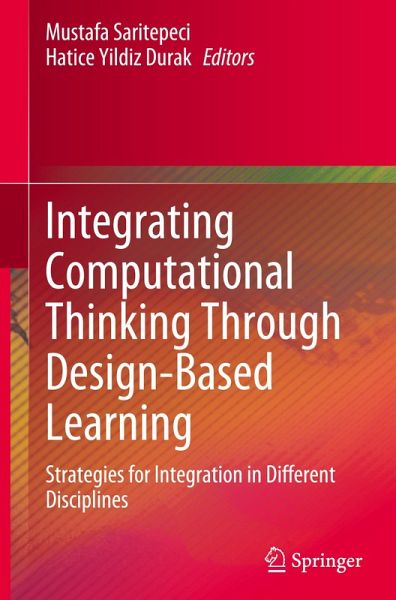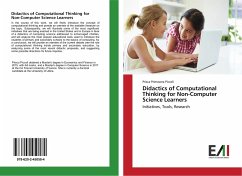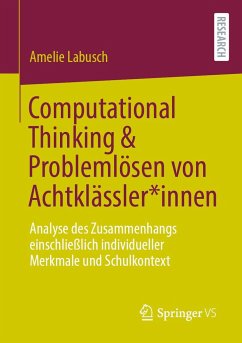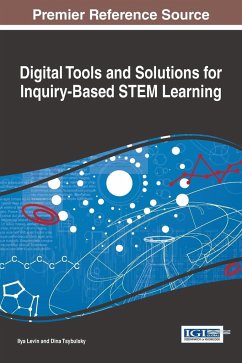
Integrating Computational Thinking Through Design-Based Learning
Strategies for Integration in Different Disciplines
Herausgegeben: Saritepeci, Mustafa; Yildiz Durak, Hatice

PAYBACK Punkte
61 °P sammeln!
This book creates a theoretical framework to consider the integration of computational thinking (CT) into learning and teaching processes in different contexts from a design-based learning (DBL) perspective, and presents various intervention studies. The chapters each focus on a different aspect of CT integration through DBL, providing an overview and discussing the benefits of integrating CT into the curriculum. The book also discusses the design thinking process and how it can be used to promote CT, focusing on CT concepts and considering perspectives on how these concepts can be integrated ...
This book creates a theoretical framework to consider the integration of computational thinking (CT) into learning and teaching processes in different contexts from a design-based learning (DBL) perspective, and presents various intervention studies. The chapters each focus on a different aspect of CT integration through DBL, providing an overview and discussing the benefits of integrating CT into the curriculum. The book also discusses the design thinking process and how it can be used to promote CT, focusing on CT concepts and considering perspectives on how these concepts can be integrated into DBL activities. It also explores how artificial intelligence (AI)-based design-oriented learning activities can be used to develop students' CT skills, examines the information technology (IT) concept of pattern recognition, and provides examples of how this can be integrated into DBL activities. It presents practical examples on integrating CT into the teaching-learning process from a design-based learning perspective, summarizes approaches to assessing CT skills, and discusses them in the context of design-based learning. Lastly, this book also conducts a bibliometric analysis of publication and citation trends in computational thinking research conducted in design-based learning.














